The Journey Of El Chacal
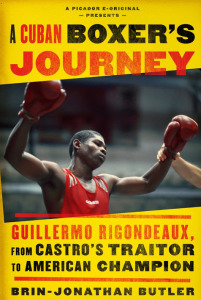 Author and director Brin-Jonathan Butler is an expert on Cuban boxing. A former amateur fighter, Butler traveled to the island nation more than once and even trained under former Olympic champion Hector Vinent, immersing himself in the system that’s produced some of the sport’s greatest talents, like Teofilo Stevenson, Felix Savon, and most recently, the extraordinary Guillermo Rigondeaux. Butler’s story, ‘A Cuban Boxer’s Journey’, details Rigondeaux’s path from Olympic gold medallist-turned social outsider in Cuba to professional fighter in the United States, where he became a champion in only his seventh pro fight.
Author and director Brin-Jonathan Butler is an expert on Cuban boxing. A former amateur fighter, Butler traveled to the island nation more than once and even trained under former Olympic champion Hector Vinent, immersing himself in the system that’s produced some of the sport’s greatest talents, like Teofilo Stevenson, Felix Savon, and most recently, the extraordinary Guillermo Rigondeaux. Butler’s story, ‘A Cuban Boxer’s Journey’, details Rigondeaux’s path from Olympic gold medallist-turned social outsider in Cuba to professional fighter in the United States, where he became a champion in only his seventh pro fight.
In the course of following ‘El Chacal’, Butler incurred serious personal and financial risks. Professional boxing is a byzantine world, and particularly so for a high-profile Cuban defector. Whether it was evading detection from the Cuban state, avoiding the long reach of Miami gangsters while in Mexico, or being robbed of his film equipment in Dublin, Butler experienced firsthand the uncertainty and danger of Rigondeaux’s world, and this uniquely positions him to tell his story.
In a larger sense, Butler’s work focuses on the personal implications of the choices elite Cuban boxers face. Their talent burdens them with an agonizing choice: to remain in Cuba, or to pursue a professional career in America at the risk of possibly never seeing their families again. Butler writes about the incomparable beauty of Havana, which is reflected in the aesthetic flair of Cuban fighters, and the city’s pain, which registers on the faces of its citizens. The conflict between staying devoted to this complex place and the possibility of foregoing millions of dollars by remaining there, puts Cuban athletes in an untenable situation. This conflict is at the heart of much of Butler’s work.
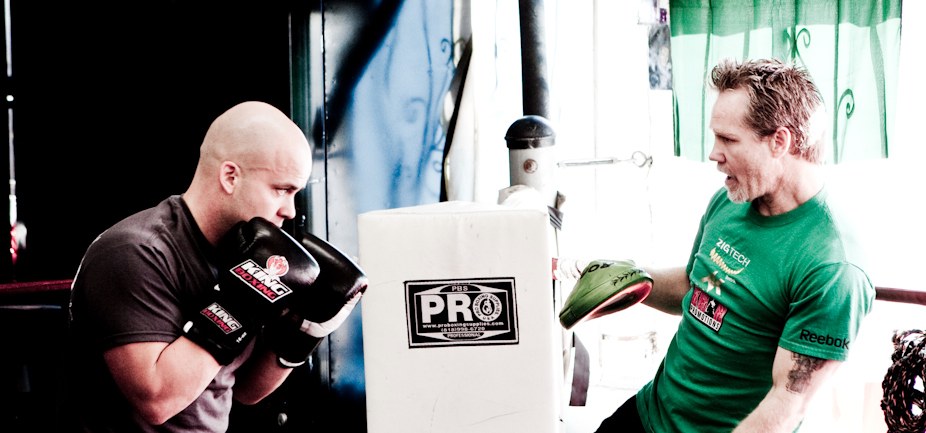
‘A Cuban Boxer’s Journey’ can be purchased here. Butler’s forthcoming memoir, ‘The Domino Diaries’ is available for order here. His interview with Mike Tyson can be found here. A terrific longform piece, ‘Heroes for Sale’, which includes footage of his interview with Teofilo Stevenson (the last interview Stevenson did before he died in 2012), can be accessed here. And here, Butler discusses some of his insights on the enigmatic champion who is a subject of great fascination for the author and filmmaker, and who just might score a huge, breakthrough victory on Saturday night, the boxer they call “El Chacal.”
Guillermo Rigondeaux might be the closest thing we have to a boxing genius. He shows unshakeable self-confidence and sometimes evinces disdain for his opponents. Can you give us some insight into how he perceives himself as a fighter?
I’ve heard Guillermo make reference to himself as a Stradivarius before and while I think that’s a very apt comparison, I don’t think it sufficiently credits his artistic gifts playing the instrument he’s been given. I’ve sat down with the likes of Lance Armstrong, George Foreman, Mike Tyson––all feared competitors in their respective sports––but none of them impressed upon me the confidence Rigondeaux has in his own ability. I’ve been with Rigondeaux numerous times in the dressing room before fights and his focus and concentration are almost deafening in intensity. Every so often he’ll pace around as the fight gets closer and then suddenly he’ll almost affectionately break the mood by winking at you or feigning a punch at your stomach.
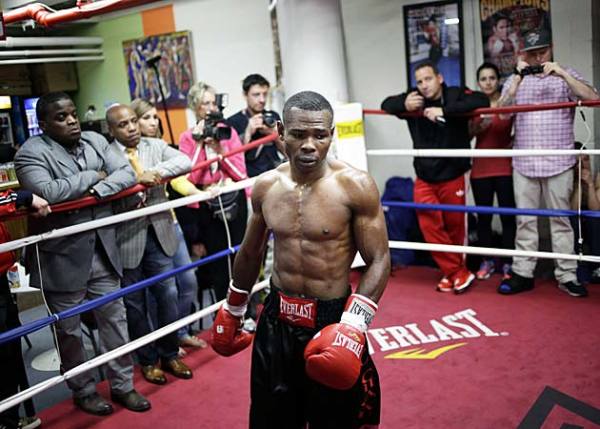
But those moments just before he was led off to compete were, for me, the most magical, intimate moments I shared with him. Someone I’ve compared Rigondeaux to in my work is Bobby Fischer, the supremely talented artist of chess. It was said of Fischer that being on the opposite side of a chessboard with him was like facing Achilles but without that issue with the heel. Everything I saw over the years I followed Rigondeaux suggested a similar feeling he had about himself. If Mayweather can be considered an all-time great, or even the greatest by some, I’ve always suggested that Rigondeaux can do everything Mayweather can do, only he can punch. And Rigondeaux has been at this level nearly 15 years. I have never seen Rigondeaux remotely surprised by his success or achieving this level of mastery. As insane as this sounds for the rest of us, the ring is quite simply the safest place on earth for Rigondeaux.

Despite his extraordinary talent, Rigondeaux suffers from lack of exposure. Having been around his fights, do you sense Bob Arum is justified in saying that, due to his defensive style and the racism towards black Cuban fighters by light-skinned Miami exiles, he’s un-promotable? Or have they just not figured out the right angle?
Silver bullets to address this problem are rare. And, equally as important, they have to be seen when you find them. When I assembled a highlight reel of Rigondeaux’s professional success in my film Split Decision, all the way up until Donaire, Rigondeaux had dropped every opponent he’d ever faced at least once. And I think had Donaire fought against Rigondeaux the way he did say against Nicholas Walters, Rigondeaux would have finished that fight early on with a knockout. Bob Arum gave Rigondeaux tremendous exposure on the undercard of Pacquiao vs Margarito, but unfortunately Rigondeaux put on one of his poorest performances against a very game, difficult opponent in Cordoba. When the final bell rang you couldn’t hear it over the boos. Occasionally, I think Rigondeaux’s biggest problem as a genius fighter is that people expect so much from him offensively. Fair enough. And when Rigondeaux demonstrates his superiority over an opponent and refuses to take chances to finish them decisively, the crowd reacts a bit like they do when Lebron James is on a breakaway and he lays the ball in instead of dunking. With Cordoba, Rigondeaux badly injured his reputation. Thereafter, he put on scintillating performances on his way to Donaire and then, as an underdog, he eradicated Donaire in such a fashion Donaire has never recovered.
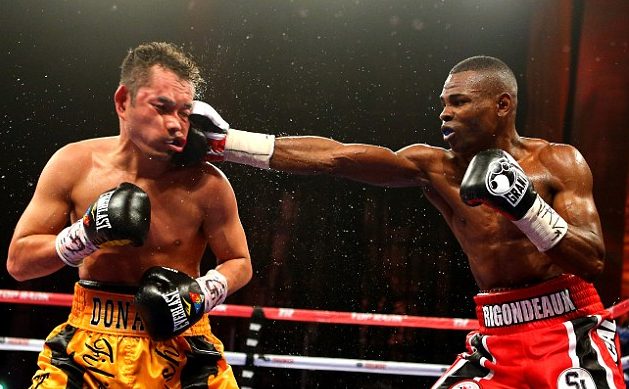
Arum’s comments about Rigondeaux being a nightmare to promote after that fight seemed grossly unfair. He also added that bringing Fidel Castro to co-promote would be the only way to make a success of it. This seemed an incredibly callous, cruel remark given what Rigondeaux has gone through to come to America at the expense of never seeing his family again. Rigondeaux could of course make some strides to ingratiate himself to the American public such as learning English, making himself available to interviews more readily, being less paranoid in general. But he’s been through a whale of a journey getting to America and it cost him a lot. His backstory, as we’ve seen with other Cuban athletes like El Duque and Yasiel Puig, is fully capable of capturing the public’s imagination provided the timing is right. My own personal opinion of what would make him marketable is something like what Mayweather has done, turning “heel” in WWE parlance, and making people cheer to see the unbeatable champion possibly lose. But Rigondeaux is far too intensely private, I would think, to play that game. He prefers his fighting to speak for itself. It does, but thus far it hasn’t sold a lot of tickets.
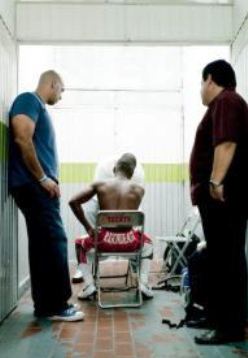
After his failed attempt to break away from Cuba in 2007 while in Brazil, Rigondeaux was publicly shunned by Castro, which made him a pariah and basically ended his boxing career at home. In this sense, his hand was forced if he wanted to continue fighting, meaning he had to leave Cuba. In light of the way things have unfolded, do you sense that Rigondeaux is satisfied or apathetic about the trajectory of his career?
As I mentioned before, the ring is where Rigondeaux feels safest in the world. He never had a bank account during his lifetime in Cuba. He received a car and a small duplex for his two Olympic gold medals. Navigating the waters of American society outside a boxing ring has been terribly difficult for him. And, of course, he’s no longer young. Time is ticking away. The irony of him being held hostage to the politics of boxing is that he left Cuba to be free of the politics over there. His cage might be gilded in gold in America compared to the one he left in Cuba, but he remains trapped mostly by forces he can’t do much about. I think what was required in terms of focus and determination to make Rigondeaux into the kind of fighter he is also, unfortunately, makes him very stubborn to adapt in other ways that would make his journey in professional boxing a little easier. He’s been very resistant to take those steps, instead relying on his supremacy in the ring hopefully clearing up any obstacles. I’m sure he’s terribly frustrated but then he’s also made some good money in America after leaving a country where he made less than $20 a month. The title of my documentary film, Split Decision, was meant to reflect how no boxers who stayed in Cuba or, like Rigondeaux, left the island, were able to win any of their battles cleanly.
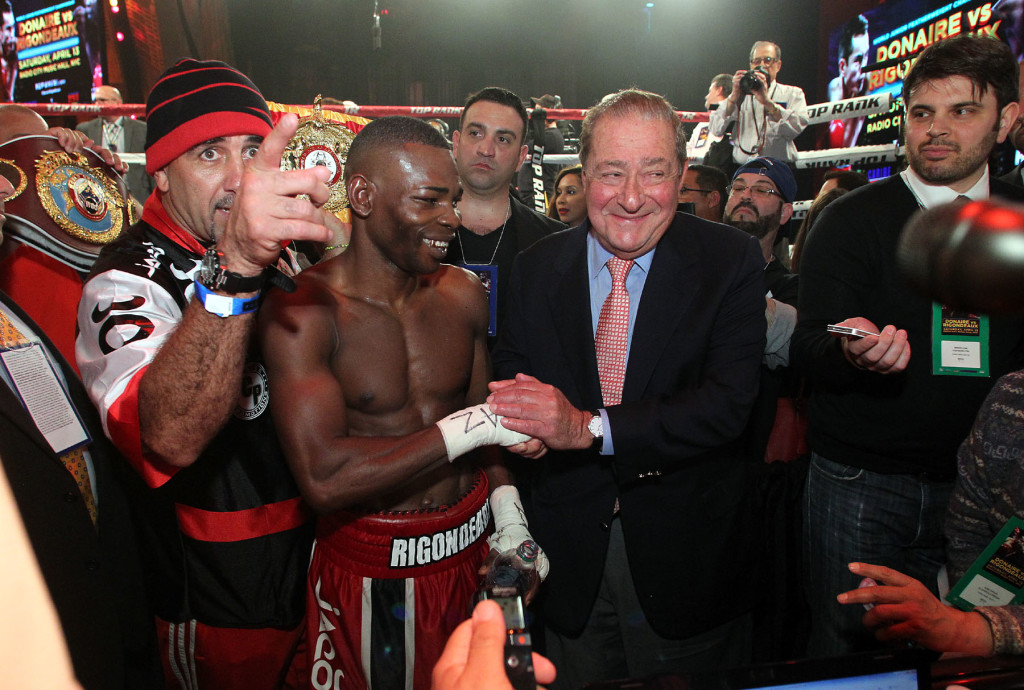
Rigondeaux is a complicated figure but you describe the experiences of being with him before fights as “the most magical, intimate moments I shared with him.” This quote speaks to the rapport you developed. Can you describe how your relationship with Rigondeaux evolved over time?
I think at the outset, Rigondeaux appreciated both how seriously I took his quest to win a championship and the fact that we’d met on the island prior to him coming to the United States. I think he was a little baffled about arriving in the US and being a relative unknown, unlike his status in Cuba where everyone in Havana knew exactly who he was. That being said, under the circumstances, Rigondeaux was very cagey about having his story told lest his family face any adverse effects back in Cuba. I think we got a little closer as time went on and he began to trust me more. In Ireland after I had my camera and footage stolen by criminals looking to steal Rigondeaux’s championship belt, I bet everything I had on him winning his fight the following day, wagering at 20-to-1 odds he could knock out Willie “Big Bang” Casey.
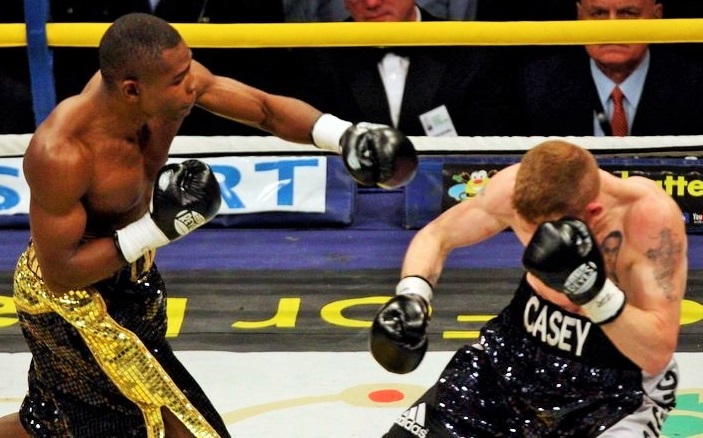
Rigondeaux was the only person in his camp who encouraged the madness of that proposition. I had no ability to keep filming, I was hugely in debt to credit cards and lines of credit and borrowed money, and my only way to keep going was gambling at seriously long odds to get back to Cuba and interview his family. I’d like to say I took the chance based on balls, but it was pure desperation. That being said, every subsequent time I’ve run into Rigondeaux he holds out his hand asking for his cut. In a way, I think Rigondeaux recognized I was following behind his trek like someone chasing an ambulance through traffic. I genuinely admired him a great deal before he stepped foot on American soil and my aim all the way along was to give him a fair shake and illuminate as much as I could about his incredible story with as much compassion and context as I could. I don’t know that I succeeded, but I risked everything I had to do so. I’m tremendously grateful he granted me the access he did and it’s been thrilling to see him accomplish his success.
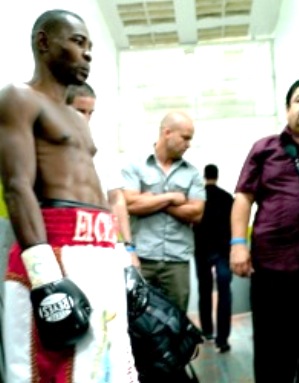
You have a complex and emotional relationship with Cuba, and particularly Havana, that enriches your work. In your essay ‘Heroes for Sale’ you write: “There are a lot of cities in this world that can break your balls, but nowhere I’ve ever been can break your heart and leave it bleeding like Havana. When you leave the scab comes off and never heals. And after you first arrive, you’re told by many that everyone deserves to have Havana as a ciudad natal, a hometown. This is an ugly condition I’ll confess very uneasily: I’m homesick for a place I wasn’t born to.” Because of the filming you did for Split Decision, you likely can’t return to Cuba. You’re now in a position to answer the question at the heart of the Cuban-athlete quandary you’ve probed, albeit, in reverse order, since you went to Cuba to ply your trade, not away from it: is your creative output worth the exile?
Oscar Wilde said, “There are only two tragedies in life: one is not getting what one wants, and the other is getting it.” I’ve never been someone who struggled between these choices. I wanted to get as close as I could to the question that most obsessed me about the plight of Cuban boxers. I knew exploring that question about why they stay and why they leave was one of the most sensitive areas in Cuban society and exploring it top-down with Cuba’s most accomplished athletes carried tremendous risks. But I think I came away with what I was looking for and was able to offer something useful and of value. The story I most wanted to read, and the film I most wanted to see, ended up being the book and film I made about Cuba. I don’t know how many stories like that are offered to artists in their life times, so I pushed my chips in.

I have tremendous admiration for Cubans and I tried to pay back a debt I felt I owed to an awful lot of people’s kindness and generosity toward me with my work and the chances I took to get it. I miss Cuba and many of the friends I made over there, but I don’t have any regrets about the choices I made to pursue the questions I did over there. I think most writers struggle with the dynamic we have with all the subjects we care about in terms of selling them out. Not telling the stories I heard, for me, felt like more of a sell out. My hope was that the more people who learn about the human cost of the ideology on both sides of the 90 miles, the more opportunity there is for change and dialogue. Rigondeaux held a tremendously high symbolic position in Cuban society because, going back to the Olympic games in Greece, people decided wars could be replaced with competition instead. What fascinated me about his journey chasing the American Dream in a smuggler’s boat was that he seemed as much a canary in the coal mine to the health of American society as he did back in Castro’s Cuba. — Eliott McCormick
Ed. note: This interview was originally published in December, 2014.

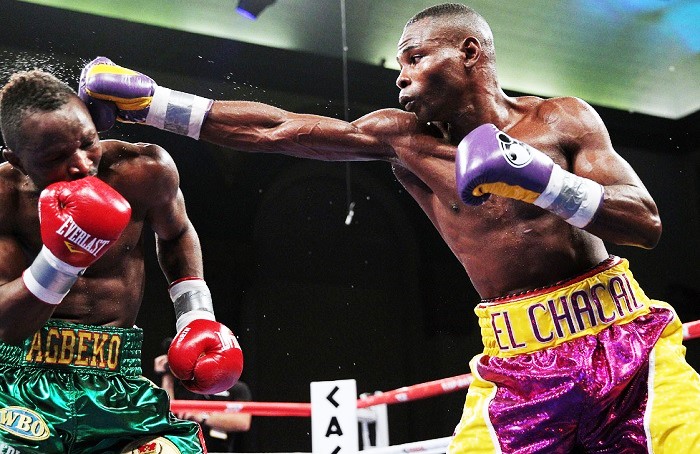

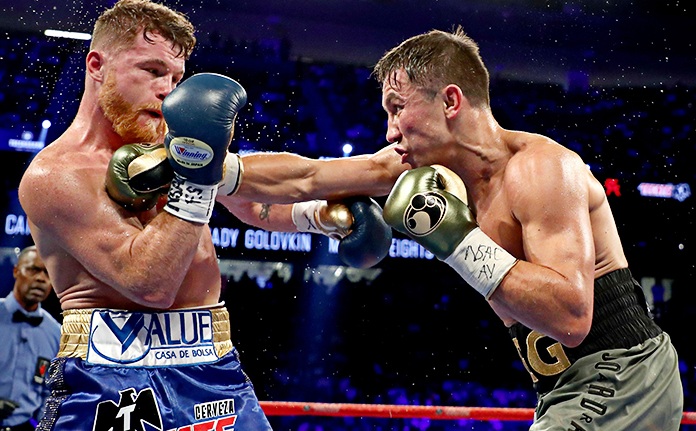
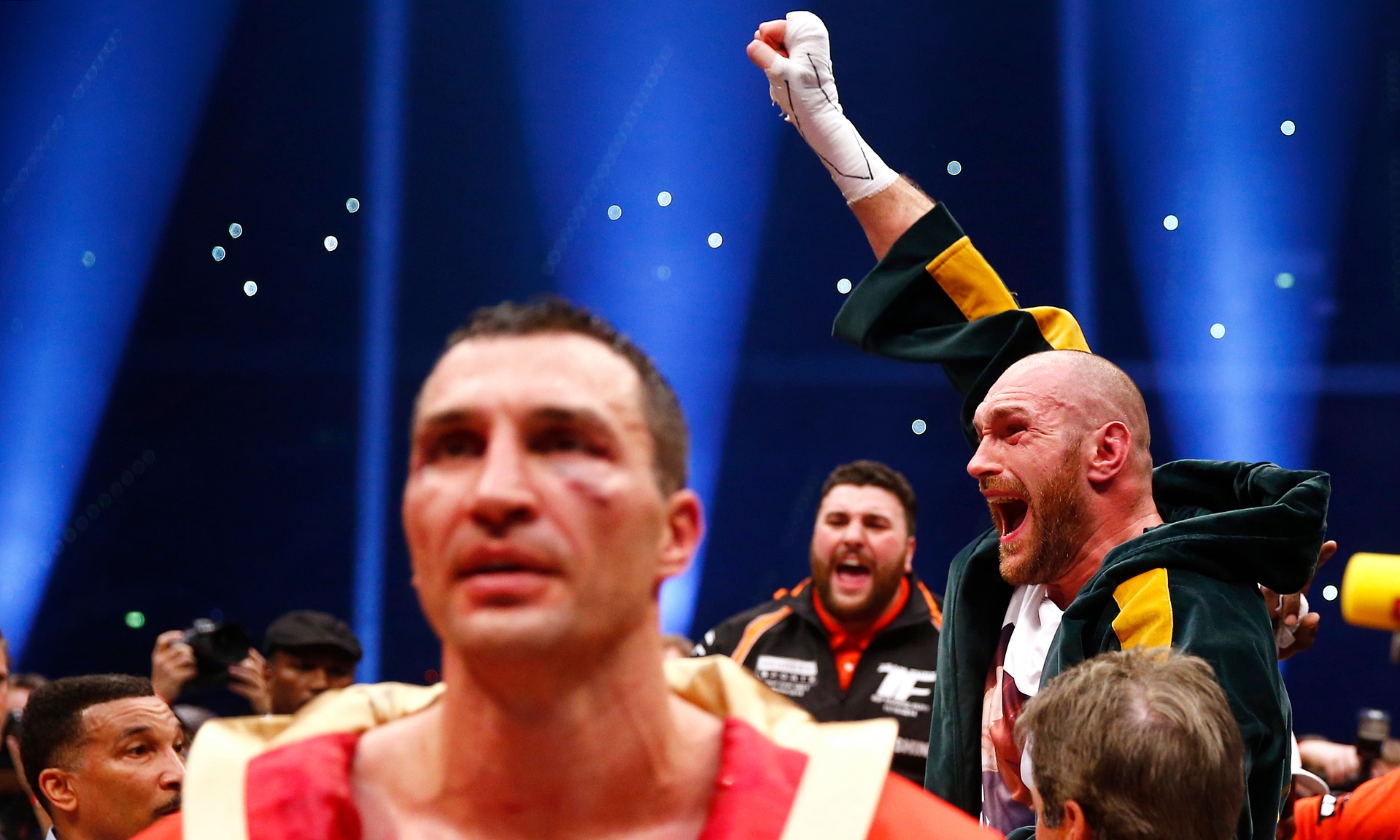
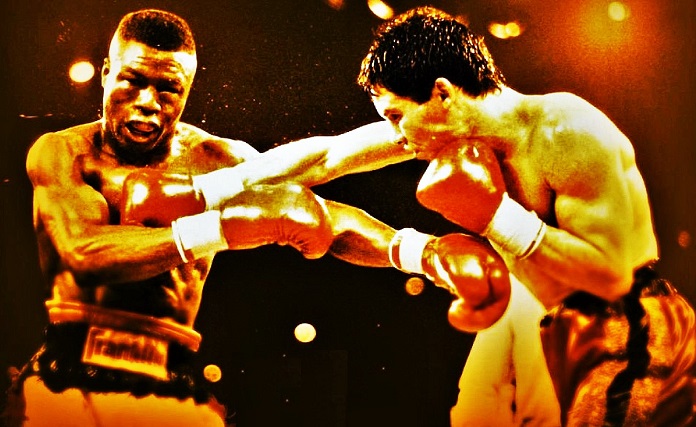
Great interview, like this website I really enjoy Brin-Jonathon Butler’s work. I participated in Reddit r/boxing AMA he did; along with reading the work he had posted on SB Nation. I haven’t read his books yet due to not owning an e-reader or tablet, but I will once breakdown and get one.
Thanks for reading Scott. If you have the Kobo app on your phone you can download the book with it. David Lynch might not agree with absorbing serious cultural artifacts via cell phone (https://www.youtube.com/watch?v=wKiIroiCvZ0), but it works.
Great interview – I’ve been looking forward to ‘Split Decision’ for a long time now. It’s unfortunate that Rigo has been outcast to non-televised, smaller market fights. He has such great skill, and I know that boxing purists really appreciate what he does in the ring. It’s too bad that guys like Bob Arum and Dan Rafael can’t see the same thing.
Thanks for reading Doctor. Yes, it’s unfortunate that talent doesn’t always translate into popularity, but that could be said of any industry, in any era. If it did, Rigondeaux would have more cultural clout than Kim Kardashian. His fists break jaws, though, not the internet, and that isn’t enough to make a dent.
I think that Bob Arum’s comments show a real lack of imagination. As a promoter, it’s his job to make Rigondeaux marketable. In other words, use whatever is interesting about him to attract the attention of boxing fans (like his back story, for instance). The idea that a man in his thirties with over 400 amateur fights and two Olympic gold medals should change his ways to appease boxing fans seems ridiculous to me. As Rigo’s story gets told through features like Split Decision, hopefully more people will take notice. On the other hand, he continues to win and make money, and maybe that’s enough. Rigondeaux also might have a future as a rapper: https://www.youtube.com/watch?v=24gd8Yw62S4
His film “split decision” has not been published yet, has it?